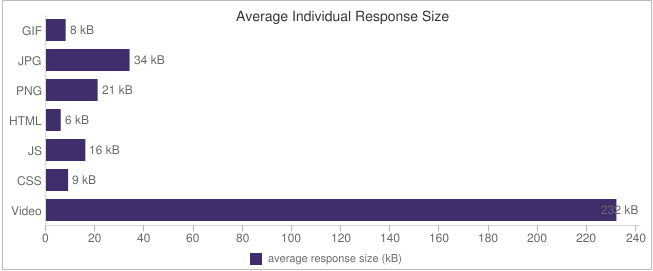
June 17, 2015
Zipping around from site to site for research, shopping or other activities online is a deeply gratifying feeling, but if you've noticed you're spending more time staring at your device while pages load, it's not just your imagination or an acquired impatience (it was still called "surfing" with 56K modems, after all).
As websites add more functionality and adjust to the display specs on dozens of different mobile devices, the complexity has contributed to script-heavy features that place a noticeable strain on broadband pipes and wireless spectrum, CNN Money reports.
At 2.1 MB, the average website is now is three times larger than three years ago, according to data tracked by the HTTP archive. The top culprits for the added weight are videos, images, third-party data-tracking tools, and interactivity plug-ins such as comments and feeds. The following chart breaks down which content types have the largest average individual response, or transfer, size (KB).
Site wide, in MB, images account for the bulkiest content, comprising 63 percent of sites, followed by scripts at 16 percent and video at 10 percent.
Other factors that lead to a slower web include network congestion, processing power, browser type and other applications that are open while on the web.
Read more at CNN Money.
